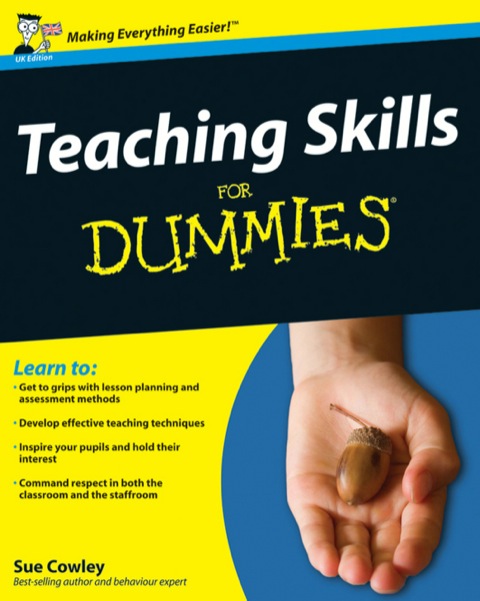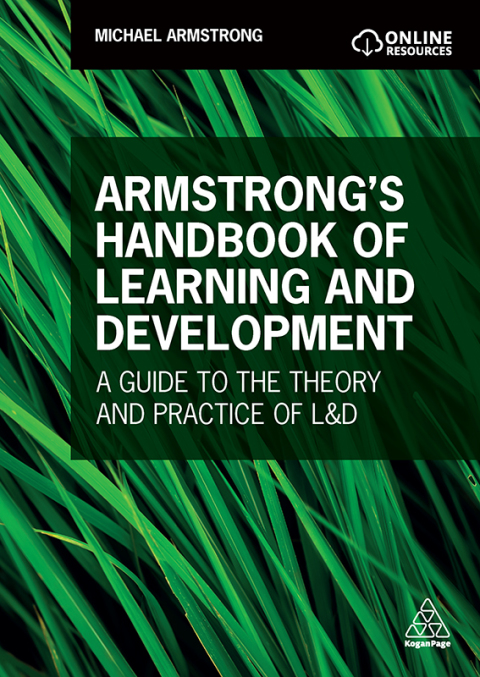Description
Efnisyfirlit
- Teaching Skills For Dummies
- About the Author
- Dedication
- Acknowledgements
- Contents at a Glance
- Table of Contents
- Introduction
- About This Book
- Conventions Used in This Book
- What You’re Not to Read
- Foolish Assumptions
- How This Book Is Organised
- Part I: Developing Your Teaching Style
- Part II: Teaching a Class
- Part III: Managing a Class
- Part IV: Dealing with Different Kinds of People
- Part V: Succeeding Beyond the Classroom
- Part VI: The Part of Tens
- Icons Used in This Book
- Where to Go from Here
- Part I Developing Your Teaching Style
- Chapter 1 Building Your Teaching Skills
- Developing Your Teaching Style
- Understanding your teaching style
- Becoming a confident teacher
- Improving how you communicate
- Managing and Teaching Your Class
- Creating fantastic lessons
- Being a brilliant teacher
- Taking control of your classroom
- Using structures to develop effective learning
- Handling behaviour in a positive way
- Creating a positive classroom climate
- Getting to Know the Main Characters
- Building relationships with your students
- Playing your part in the staff team
- Handling parents
- Building Your Skills Beyond the Classroom
- Dealing with paperwork
- Balancing your marking
- Working with your students beyond the classroom
- Reflecting on and developing your skills
- Chapter 2 Understanding Teaching Styles – and Developing One That Works for You
- Putting on Your Teaching Character with Confidence
- Picking the right character
- Appearing confident – even when you’re not
- Exploring Different Teaching Styles
- ‘Old-school’ style – strict and scary
- ‘Modern’ style – firm, fair and fun
- Examining Your Own Teaching Style
- What works for me?
- What works in my setting?
- What works with my students?
- Reflecting on your challenges
- Developing Your Teaching Style
- Playing around with verbal and non-verbal communication
- Varying your lessons
- Chapter 3 Making the Most of Your Communication Skills
- Examining What You Say and Do
- Communication’s all about perception
- Understanding the subconscious messages you send
- Making Magic with Your Mouth
- Benefiting from volume
- Getting to the truth about tone
- Playing with pace
- Picking the right words
- Keeping to the point
- Letting Your Body Do the Talking
- The eyes have it
- Facing the facts
- Helping hands
- Perfecting posture and body position
- Taking Control of the Space
- Part II Teaching a Class
- Chapter 4 Preparing and Teaching High-Quality Lessons
- Remembering Your Own Teachers
- Planning for Success
- The components of an effective plan
- The three Rs of lesson planning: Reduce, reuse, recycle
- No plan, no problem?
- Structuring a Quality Lesson
- Sharing the lesson’s structure with your students
- Formats for success
- When to let your lessons develop organically
- Delivering a Brilliant Lesson
- Getting their attention
- Passion and inspiration
- Getting the content right
- Personalising the learning to the learners
- Making lessons topical
- Dealing with differentiation
- Keeping lessons interactive
- Don’t forget the fun!
- Chapter 5 Getting (and Keeping) a Class Engaged
- The Keys to Engaging Your Students
- Creating connections
- Creating engaging lessons for modern students
- Creating a sense of curiosity
- Looking at Learning Styles
- Teaching for different learning styles in the classroom
- Getting hands-on for learning
- Developing activities for different learning styles
- Creating Multisensory Lessons
- Why the senses are key
- Using the five senses
- Playing with the senses
- Chapter 6 Getting the Most Out of Your Students
- Keeping a Class On Task
- Introducing the activity
- Using targets and time limits
- Incorporating rewards
- Creating a sense of pace
- Fostering Focused Learning
- Developing focus and concentration
- Developing good listening skills
- Managing noise levels
- Using a Variety of Tasks
- Hallmarks of a nicely varied lesson
- Achieving variety across different subjects
- Making the Most of Resources
- Different kinds of resource
- Getting hands-on with resources
- Unusual ideas for resources
- Creating Fantastic Displays
- Exploring how displays contribute to learning
- Understanding what makes a good display
- Finding interesting places for displays
- Getting Assessment Right
- Different kinds of assessment
- The balancing act of marking
- Part III Managing a Class
- Chapter 7 Structuring Your Teaching and Your Teaching Space
- Establishing Your Routines
- Understanding why routines are so vital
- Creating routines that work for you
- Creating routines to suit different age groups
- Maintaining your routines
- Managing Your Lesson Time
- Predicting how long activities should take
- Pacing a lesson to fill the time allotted
- Working with Groups
- Understanding why group work matters
- Organising your groups
- Getting the most out of every group member
- Setting Up Your Space
- Understanding the importance of layout
- Developing layouts for learning
- Managing the learners in the space
- Using a seating plan
- The teacher in the space
- Chapter 8 Building Better Behaviour
- Establishing Your Expectations
- Defining what’s inside the box
- Picking the right time
- Sharing your expectations with your class
- Helping students mind the rules of the road
- Making a Class Come to You
- Getting silent attention
- Maintaining focus
- Maximising Your Strengths
- The power of personality
- Creating a powerful relationship
- Establishing empathy
- Overcoming Your Obstacles
- Dealing with nerves
- Staying calm
- Being consistent
- Maintaining a distance
- Staying on track
- Avoiding aggression
- Finding Strategies that Work for You
- Matching the strategies to the situation
- Matching the strategies to your style
- Practical strategies for managing behaviour
- Chapter 9 Creating a Positive Classroom Atmosphere
- Understanding Why Positivity Is Important
- Establishing a Positive Atmosphere
- Put on a happy face
- Make your students feel worthwhile
- Use rewards and sanctions appropriately
- We’re in this together
- Manage your own moods
- Maintaining your positive atmosphere
- Getting Rewards Right
- Finding the right motivation
- Choosing and applying rewards
- Suiting rewards to the individual student
- Setting the Scene for Sanctions
- Understanding how punishment works
- Applying sanctions
- Sanctions in your setting
- Chapter 10 Handling Challenging Situations
- Dealing with Confrontation
- Understanding why confrontations happen
- Avoiding confrontation
- Dealing with confrontation
- Handling the aftermath
- Managing Challenging Individuals
- Handling the refuser
- Dealing with the aggressor
- Coping with the verbally abusive student
- Winning Back the ‘Lost’ Class
- Spotting the warning signs
- Getting a class back under control
- Coping with a lost class
- Managing Your Stress Levels
- Recognising signs of being over-stressed
- Strategies for dealing with stress
- Part IV Dealing with Different Kinds of People
- Chapter 11 Getting to Know Your Students
- Discovering How to Build Relationships
- Why good relationships are vital
- Building bonds with your students
- Using questions to ‘click’ with your class
- Buddy or boss – getting the balance right
- Treating them as people as well as students
- Names, names, names – knowing and using them
- Dealing with Different Types of Student
- Differentiating your approaches
- Handling students with special needs
- Managing the brightest learners
- Boosting self-esteem and confidence
- Dealing with those who opt out
- Developing Your Pastoral Role
- Understanding what your pastoral role is about
- Developing your pastoral role
- Chapter 12 Working as Part of a Team
- Building a Positive School Ethos
- Fostering a Team Environment
- Supporting other team members
- Taking a consistent approach
- Understanding different perspectives
- Valuing everyone’s contribution
- Trying not to pass on your problems
- Sharing your ideas and resources
- Rewarding and motivating others
- Understanding Who’s Who in Your Team
- Teaching staff
- Teaching support staff
- Non-teaching support staff
- Finding other sources of support
- Working with Teaching Support Staff
- Getting to know your support staff
- Making the most of your support staff
- Exploring useful roles for support staff
- Getting to Know the Right People
- Good acquaintances to make
- Staff you’re best to avoid
- Chapter 13 Building Bonds with Parents
- Understanding Parents
- What parents really want from teachers
- Looking for the perfect parent
- Working with the difficult or indifferent parent
- Getting to Know Parents
- Building lines of communication
- Getting parents involved
- Using parent volunteers
- Reporting to Parents
- Handling the parents’ meeting
- Writing effective reports
- Part V Succeeding Beyond the Classroom
- Chapter 14 Climbing the Paper Mountain
- Dealing with Paperwork
- Determining what’s essential and what’s not
- Bin it, deal with it, pass it on: The three rules for managing paperwork
- Your ‘To Do’ List: A Lifesaver during Busy Times
- Marking Papers and Writing Reports: Achieving the Impossible
- Handling your marking load
- Dealing with report writing
- Learning the Art of Filing
- Creating an effective filing system
- Maintaining your filing system
- Chapter 15 Getting Involved in Extra-Curricular Activities
- Inspiring Beyond the Classroom
- Just how involved can you be?
- Why extra-curricular activities matter
- Different types of extra-curricular activities
- The ups and downs of getting involved
- Taking Time Out for a Trip
- Deciding to take a trip
- The technicalities of trips
- Handling behaviour on school trips
- Getting the most out of a trip
- Chapter 16 Evaluating and Furthering Your Teaching Skills
- Taking Stock of Your Situation
- Understanding your strengths and weaknesses
- Considering where you go next
- Getting the Most Out of Observations
- Preparing for an observation
- During the observation
- Getting feedback after an observation
- Dealing with inspection and inspectors
- Furthering Your Personal Development
- Taking additional qualifications
- Doing something just for yourself
- Part VI The Part of Tens
- Chapter 17 Ten Great Ways to Engage with a Group
- Build a Relationship
- Use Inclusive Language
- Create Imaginative Scenarios
- Remember Their Names
- Give a Little of Yourself
- Find Out What They Love
- Use Imaginative Rewards
- Take Them Outdoors
- Use the Power of the Peer Group
- Give ’em a Surprise
- Chapter 18 Ten Key Strategies for Handling Difficult Behaviour
- Stay Calm
- Ignore Attention Seekers
- Be Reasonable, But Don’t Reason with Them
- Give Troublemakers a Choice
- Stick to Your Guns
- Know When to Be Flexible
- Turn on a Penny
- Apply Lateral Thinking
- React from Your Head, Not from Your Heart
- Put Yourself in Their Shoes
- Chapter 19 Ten Tips for Dealing with Stress
- Keep a Sense of Perspective
- Don’t Take Things Personally
- Build a Support Network
- Create a Home/Work Divide
- Put Up a Wall
- Maintain a Sense of Humour
- Feel Pity, not Anger
- Learn to Forgive Yourself
- A Fresh Start Every Time
- Give Yourself a Pat on the Back
- Chapter 20 Ten Best Book and Website Resources for Teachers and Trainers
- Books
- Cracking the Hard Class
- The Craft of the Classroom
- Getting the Buggers to Behave
- Surviving and Succeeding in Difficult Classrooms
- The Teacher’s Toolkit
- Useful Web Sites
- Primary Resources
- Teachernet
- Teachers TV
- The Times Educational Supplement (TES)
- Woodlands Junior School
- Index
- Advert






Reviews
There are no reviews yet.